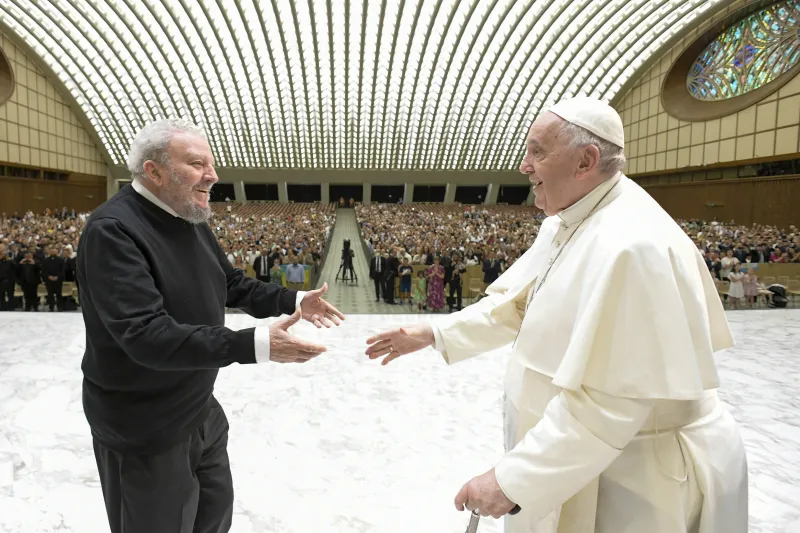
Vatican City, Jun 27, 2022 / 10:30 am (CNA).
Pope Francis on Monday met and ratified the assignments of families, priests, and seminarians of the Neocatechumenal Way preparing to become missionaries in foreign countries.
“Do not forget the gaze of Jesus, who sent each of you to preach and obey the Church,” Pope Francis said on June 27.
“We have heard Jesus’ mission, ‘Go, bear witness, preach the Gospel,’” he said. “And from that day the Apostles, the disciples, the people all went forth with the same strength as Jesus had given them: it is the strength that comes from the Spirit: ‘Go and preach, baptize.’”
The pope’s brief remarks were made during the Neocatechumenal Way missionary confirmation and sending, a meeting which included prayer and song, in the Vatican’s Paul VI Hall.
The Neocatechumenal Way is an ecclesial movement which draws its inspiration from the practices of the early Church, providing post-baptismal Christian formation in some 40,000 small, parish-based communities.
The movement is present all over the world, and says it has an estimated membership of more than 1 million people. It was founded by Kiko Argüello and Carmen Hernández in Spain in 1964.
Argüello introduced the gathering and announced that the first stage of the cause of beatification of Hernández, who died in 2016 at the age of 85, will soon be opened.
The 83-year-old movement leader also listed the missionary families’ countries of destination, which spanned Europe, Asia, Africa, Australia, and the Americas.
Several students of Neocatechumenal Way seminaries will be doing missionary work in China, Argüello said.
Pope Francis encouraged the new missionaries to let a Christian community grow “in its own ways, in its own culture.”
“This is the story of evangelization,” he continued. “All are equal in terms of faith: I believe in God the Father, Son and Holy Spirit, the Son who became incarnate, died and rose again for us, the Spirit who helps us and makes us grow: the same faith. But all with the mode of their own culture or the culture of the place where the faith was preached.”
He said the multi-cultural richness of the Gospel is the story of the Church: “So many cultures but the same Gospel. So many peoples, the same Jesus Christ.”
The pope thanked the families for their willingness to share the Gospel as missionaries, and encouraged them to be docile to the Holy Spirit and obedient to Christ and his Church through the local bishop.
“This is the spirituality that must accompany us always: to preach Jesus Christ by the power of the Spirit in the Church and with the Church,” Francis said.
If you value the news and views Catholic World Report provides, please consider donating to support our efforts. Your contribution will help us continue to make CWR available to all readers worldwide for free, without a subscription. Thank you for your generosity!
Click here for more information on donating to CWR. Click here to sign up for our newsletter.




Humanity is thirsting and longing to receive and experience the Good News of liberation, emancipation, empowerment, justice, healing, mercy, compassion and fellowship.